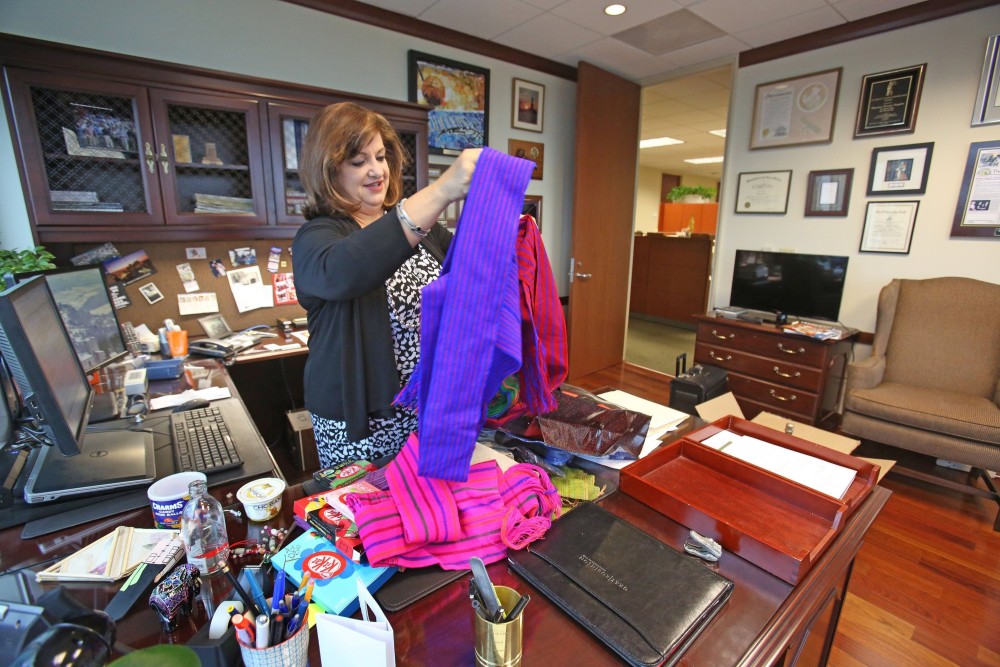By Jim Stratton
Orlando Sentinel
When young lawyers go to work for Mayanne Downs, they’re in for a shock.
Downs, a former Florida Bar president, has established four guidelines for her staff at GrayRobinson in Orlando, Fla.
First, they are free to work the schedule that suits their home life.
Second, they may leave the office whenever necessary for a family commitment.
Third, before taking a case, they must meet with Downs to decide how much responsibility they’re comfortable accepting.
And last, if there’s some errand cluttering their to-do list, think “pick up dry cleaning”, they’re encouraged to ask the office concierge, Downs’ college-age daughter, to handle the job.
“She comes in once a week,” said Downs, Orlando’s city attorney. “Does stuff like goes to Whole Foods to get milk, buys makeup, picks up prescriptions.”
The policies are part of Downs’ attempt to help her staff members, the women in particular, strike a balance between their work and home lives.
The effort reflects a growing sense that, historically, most companies have done little to acknowledge that many women work two full-time jobs: one in the office and one at home.
Downs said it’s an experiment in reality-based management.
“I don’t want expectations to chew on our souls,” she said.
The approach remains relatively rare, according to a 2012 poll from the Society of Human Resource Managers. It found that, although about half of all companies take small life-work-balance steps, such as discouraging employees from working while on vacation, just 10 percent offered formal flex-time programs.
“There’s still an element of rewarding ‘showing up,’ ” said Anne Perschel, an organizational psychologist who has worked with organizations such as CVS and the Girl Scouts of America. “They still want to see you at the desk.”
Charles Tews, president of the Tews Co., a Central Florida staffing company, agrees.
Tews said he hasn’t seen a rush to adopt practices such as flex time. Many jobs, he said, simply don’t lend themselves to unconventional schedules.
That said, Tews sees value in the effort.
He lets his business-development staff, both mothers, work a modified schedule.
Three days a week, they’re visiting clients or working in the office. The other two, they’re free to work from home. Tews recruited one of his top people by offering that flexibility.
“It works well for us,” he said. “It’s been fairly seamless.”
Women, by and large, are America’s domestic managers. More men than ever share household and child-care duties, but women are the crew chiefs. The Pew Research Center says women handle most decision-making in 43 percent of all couples. Men do so in only 26 percent of couples.
Serving that role while managing a career is exhausting, as evidenced by the results of recent LinkedIn survey.
It found that 63 percent of women define career success as having a job that allows them to balance their personal and professional lives. More than half said that early in their careers, they defined professional success as “earning a higher salary.”
Jenny Sullivan, 33, once fell into that category.
As a young lawyer, Sullivan said she wanted to be a partner, have a “huge book of business” and make a lot of money. That changed when she had a baby. Now she defines career success as having a job she enjoys “and having some control over my future.”
She has found that working for Downs at GrayRobinson.
Sullivan gets in about 9 a.m. and tries to leave just before 5 p.m. When she wants to, she works from home. It’s not radically different from what she did at her previous firm, with one important exception: “I’m working that schedule with permission.”
She’s also pretty fond of the “concierge service.”
“I have groceries right now sitting under my desk that she got me,” she said. “Everybody should have one.”
Few companies are likely to go that far, but Linda Walters said businesses “absolutely” must help more employees, especially women, balance personal and professional responsibilities. Walters is a University of Central Florida biology professor and director of the school’s Center for Success of Women Faculty.
One of the center’s goals is to help faculty members find a happy mix. To that end, it conducts workshops on issues such as managing a two-career marriage, nurturing a career while children are young, and working while caring for an elderly parent.
Walters mentors young faculty members, showing them ways to reduce conflicts between work and home. Sometimes it’s a product of choices and planning.
After Walters had her son, for example, she began doing research closer to home, rather than traveling to exotic locations.
The Caribbean is nice, but there’s plenty of science to be done in Florida’s Indian River Lagoon.
“At the end of the day, people want to feel like their world is in balance,” she said. “That’s where they want to be.”














































































































































































































































































































































































